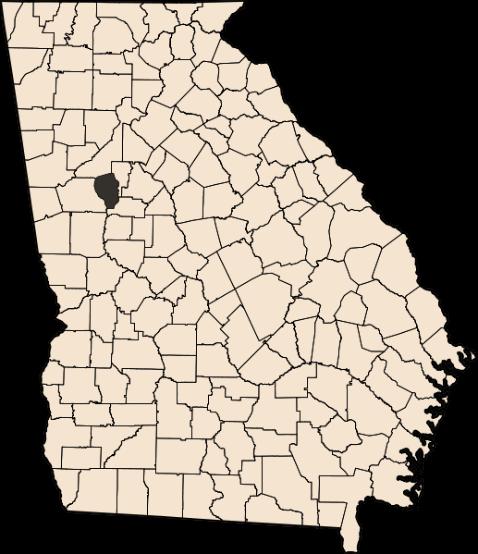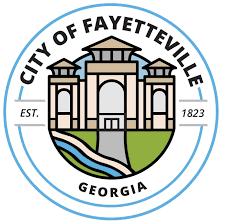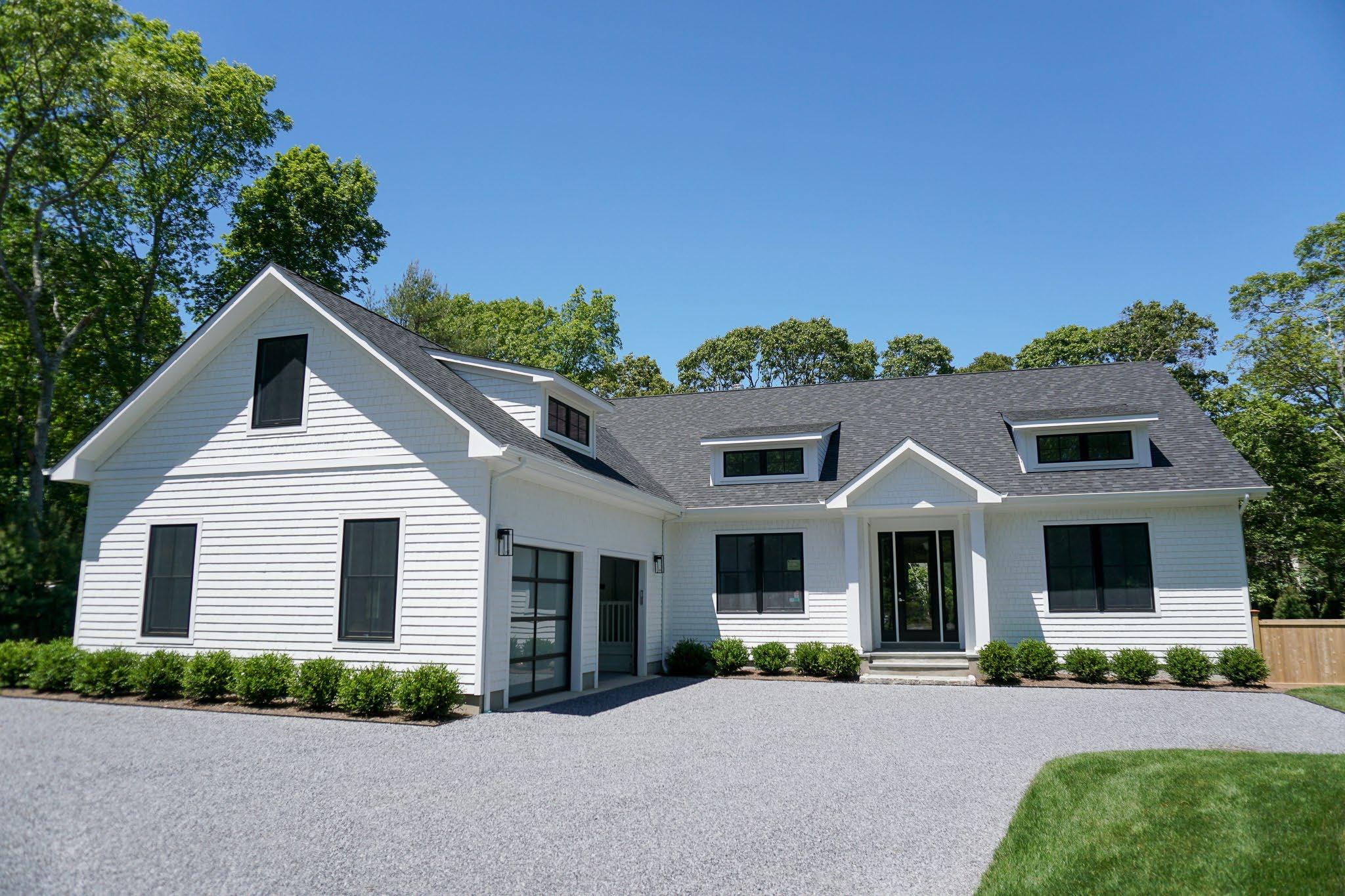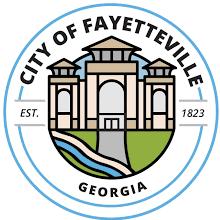














In August 2024, the City of Fayetteville, Georgia (city), engaged Garner Economics LLC (Garner) to update its economic development strategy, first completed by Garner in 2016. This current report documents the numerous achievements that have occurred since the presentation of that plan nine years ago.
The status quo is not an option. This new plan, titled RE-IMAGINING
FAYETTEVILLE: A 5-YEAR ECONOMIC DEVELOPMENT ACTION PLAN, allows the city to set a course focusing on economic vitality for the next 5 years. This action plan will help the city attract high-value businesses and retain existing businesses, create jobs, enhance the quality of place in Fayetteville, and nurture opportunities to attract talent.




PHASE I

PHASE 2
Discovery

Analysis & Strategy FINAL REPORT

This new approach began with a comprehensive review of the city in terms of its people, place, and product. Elements of the Phase 1 Discovery effort included:
• A deep dive into the demographic, community & economic dynamics of Fayetteville
• An Assets & Challenges Assessment from the lens of a site selection consultant
• Stakeholder engagement to ascertain the perceptions local businesses and leaders have of the city
• On-site visits and tours of the city to determine firsthand the assets and product available or in development.
Findings from this Phase 1 effort were published in December 2024 in the COMPETITIVE REALITIES REPORT (CRR), a compilation of local and regional facts, data points, and stakeholder feedback. A summary of the CRR is provided in Chapter 1. These results provide the basis for determining target opportunities and recommendations for the city to create its next WOW. The complete CRR is on file with the city economic development staff.
The optimal business sector targets presented in Chapter 2 provide the rationale for four business sector targets specific and unique for Fayetteville. These targets are all designed to enhance the city’s business and tourism offerings, and quality of place. The targets are Sports Tourism, Creative Services, Retail & Hospitality, and Technology & Professional Services. These targets were chosen based on the area’s collective attributes, assets, and proximity to economic drivers. Each target family has a profile with supporting data and narratives for the chosen sectors.
Since the city’s first economic development strategic plan in 2016, Fayetteville has successfully created impactful growth through projects including the new City Hall and City Center Park. The past decade’s accomplishments resulted from the public and private sectors working together effectively to generate investment for the community.
But how can Fayetteville create the next WOW to continue the city’s upward trajectory? The recommendations in this report will help the city set a course for economic vitality for the next 5 years. Chapter 3 outlines recommendations from Garner Economics to address challenges, leverage the city’s assets and past successes, and prepare for future opportunities.

Garner Economics held three virtual focus groups representing a broad group of business, government and academic leaders, and one in-person focus group with city leadership (Mayor and City Council), as part of the discovery process. An electronic survey was also distributed to reach a broader audience.
3.8
3.6
City of Fayetteville Entrepreneur Business Climate Rating Support Rating
Ratings are evaluated on a scale of 1 to 5, with 5 being best.
Demographic, labor and community indicators were evaluated based on comparisons with benchmarks, changes over time, or both. The City of Fayetteville was compared to Fayette County, Georgia, the United States, as well as Frankin, TN, and Opelika, AL. Most indicators were positive, showing growth, while 9 were neutral, and 4 were deemed a challenge. Neutral ratings generally resulted from factors with both negative and positive aspects, such as high school graduation rates growing over time but below several benchmarks.
This assessment provides an overview of the city ’s strengths and weaknesses through the lens of a company or site location consultant evaluating Fayetteville for potential corporate investment. Over 50 community factors were used in this assessment across six categories, rated as an asset, challenge, or neutral indicator.
*Several individual indicators within categories were evaluated differently from the overall category. The Quality of Place category was deemed a positive trait for Fayetteville; however, housing, property crime, and cost of living were rated as neutral or a challenge. The complete analysis of Fayetteville can be found in the CRR document.

To effectively attract, retain, and expand business investments, highperforming economic development organizations often concentrate their efforts on targeted businesses. This strategy prioritizes and directs resources towards enterprises that appeal to residents and are well-suited to the local economy and workforce. By adopting a targeted approach, Fayetteville can better understand the needs and preferences of specific business sectors, allowing for tailored messaging that highlights the area’s strengths.
Garner Economics arranges business sectors among similar types of companies to create target families. This grouping helps align with the specific assets the business sectors seek—such as workforce skills and infrastructure.
How are targets chosen? Targets are determined using a desirability and feasibility screening.
Desirability: What would Fayetteville stakeholders like to see in the community? Focus group and survey responses were asked this question, and stakeholders included businesses from the hospitality sector to technology.



Feasibility: What can the City of Fayetteville reasonably attract and grow based on current or planned locational assets and economic analysis? This data-driven approach considers the city ’s competitive advantage and assets along with the overall industry performance, growth potential, or ability to improve the quality of place for new and existing residents.
Stakeholder Feedback: Targets
Desired business sectors for Fayetteville
Recommended Target Families. The four targets advised for Fayetteville are Sports Tourism, Creative Services, Retail & Hospitality, and Technology & Professional Services.
Target profiles. Each target family has a profile with a detailed rationale as to why targets were selected. This information could be valuable for marketing efforts and sharing with economic development and workforce partners.
These target families invite a full complement of recruitment, entrepreneurial, and expansion support among economic development team players for business, tourism, and quality of place.

• Sports facilities
• Outdoor tour & activities operators
• Sports & equipment retailers, distributors
• Production companies
• Tour production & promotion agencies for artists
• Postproduction film, video & sound
• Creative services (design, casting, crew)
• Equipment rental
• Local and unique boutique retail
• Fine dining restaurants
• Breweries/distilleries
• Specialty stores
• Business & shared services
• Engineering services
• IT networking & support
• Software programming
• App development
• AI development & application
• HealthTech
• FinTech/InsureTech
Economic Development
Target Activity



These target families invite a full complement of recruitment, entrepreneurial, and expansion support among economic development team players for business, tourism, and quality of place in Fayetteville.

• Sports facilities
• Outdoor tour & activities operators
• Sports & equipment retailers, distributors

The sports tourism industry is experiencing explosive growth, valued at $544 billion today and projected to reach nearly $2.0 trillion by 2032. The growing popularity of sports tournaments, such as the FIFA World Cup, Olympic Games, NBA Finals, and college championships, has boosted the growth of the sports tourism industry. The rise in the number of sports tournaments of various kinds and sizes attracts tourists as spectators or participants, which results in the success of these tournaments.
Fayetteville is at the heart of soccer’s future in this country due to the opening of the U.S. Soccer Federation Headquarters and National Training Center (NTC) in April 2026. This state-of-the-art complex will be the centerpiece of U.S. soccer development, coinciding with the 2026 FIFA World Cup, where Atlanta is one of the host cities. Trilith Live is also preparing premier World Cup events and watch parties, attracting fans from all over.
Georgia’s mild climate offers ideal sports and outdoor recreation conditions all year. In addition to climate, Fayetteville’s central location in the southeast provides easy access via highways and one

of the top airports in the world. The area’s trail systems and parks, like the Ridge Nature Area, provide the backdrop for hiking, running, mountain biking and other outdoor activities. From tournaments and training camps to endurance races and adventure sports, Fayetteville is primed to support a diverse range of sporting events.
Sports-related retail, equipment providers (for sale and rent), and sports equipment distributors can round out this target.
Fayetteville is strategically positioned to capitalize on the growing sports tourism sector. Building on the momentum of the U.S. Soccer Federation’s development, the opportunity to unlock long-term economic benefits is now. Investing in sports tourism fuels local revenue growth, attracts and retains talent, and enhances Fayetteville’s quality of place.
Several recommendations further in this report support this target, including the potentially transformative creation of a sports complex and the establishment of a Convention & Visitors Bureau. These will be pivotal in establishing itself as a leading sports tourism destination.
Target rationale includes:
• Location of U.S. Soccer Federation Headquarters and National Training Center in Fayetteville (P)(C)
• Proximity to Atlanta (P)(C)
• Centrally located for major regional & national markets (P)
• Proximity to Atlanta Hartsfield-Jackson International Airport with 70 international non-stop destinations for a total of 220 direct destinations (P)(C)
• Interstate highway access with 3 interstates within 30 minutes of the city (P)(C)
• Hotel properties located in city (P)
• Diverse dining options (P) (C)
• Competitive cost of labor (P)
• Favorable business climate (P)
• Population of 1.9 million within a 45minute drive (P)
• Area university and technical colleges within a 30-minute drive (P)(C)
• 1,100 credentials awarded for studies that support target operations (P)(C)
• Excellent quality of place (P)(C)
• Low crime rate in Fayetteville (P)(C)
• Quality of K-12 education (P)(C)
• Competitive cost of living (P)(C)
• Excellent health care options (C)
Industry/Occupation Specialization (LQ)
• Fitness & Recreational Sports Centers (LQ 1.6)
• Promoters of Performing Arts, Sports, and Similar Events without Facilities (LQ 1.8)
• Supervisors of Entertainment & Recreation Workers (LQ 1.4)
• Exercise Trainers & Group Fitness Instructors (LQ 1.4)
Legend: Items appealing to prospects/visitors & event planners (P) or community (C) needs.
1 Location Quotient (LQ) measures specialization or concentration, usually in employment. The LQ compares local employment in an industry sector or occupation as a percentage of total employment to this same percentage nationally

Fayette County & United States
Sorted by highest local employment (2024). Concentration (LQ) levels above 1.2 are highlighted in yellow.
Source: JobsEQ, all employment, four-quarter average ending 2024 Q2, Garner Economics
2 Location Quotient (LQ) measures specialization or concentration, usually in employment. The LQ compares local employment in an industry sector or occupation as a percentage of
employment to this same percentage nationally.

Fayette County Gross Regional Product (GRP) & United States Gross Domestic Product (GDP)
Sorted by highest local GRP for 2023.

Source: JobsEQ, 2023 U.S. Dollars, Garner Economics

Fayette County & United States Employment data and trends
High employment concentration (LQ) 3 above 1.2 in yellow
Source: JobsEQ, all
four-quarter average ending 2024 Q2, Garner Economics
3 Location Quotient (LQ) measures specialization or concentration, usually in employment. The LQ compares local employment in an industry sector or occupation as a percentage of total employment to this same percentage nationally.

Fayette County & United States annual average wage comparison, 2024
39-9031
49-9071
39-3091
Source: JobsEQ, all employment, four-quarter average ending 2024 Q2, Garner Economics

Fayette County’s average wages for key occupations in this target illustrate a competitive advantage in labor costs that could attract prospects. Although higher wages are desired for community wealth, competitive wages are sought by relocating and expanding firms.



• Production companies
• Tour production & promotion agencies for artists

• Post-production film, video & sound
• Creative services (design, casting, crew)
Film is a major driver of Fayetteville’s economy and a key element of the city ’s identity. The city is home to Trilith Studios, renowned for producing many Marvel Universe productions, located on a 700-acre campus featuring 34 soundstages. Georgia, particularly the Atlanta area, has become known in the film industry. The state boasts over 4.1 million square feet of soundstage space. Georgia now ranks second in stage space, surpassing New York, and only behind California. In fact, Business Facilities Magazine recently ranked Georgia No. 1 in Film Production in its 2024 Annual Rankings Report.
Accessibility, climate, diverse scenic locations, and highly skilled talent are key reasons for the film industry’s presence here. These are still essential factors; however, the industry is susceptible to ebbs and flows. Screenwriters and actors strikes, rising costs, and competitive incentives offered by other states and nations affect the film industry in the area. And, like so many other sectors, changes in technology (like streaming) make their mark.
Although it has been stated that Georgia’s film industry is resetting, there is an ecosystem for creatives in Fayetteville. This target aims to bolster that ecosystem by attracting and growing businesses in the creative sector – involving film, sound, and promotion ventures.


• Equipment rental
There is an extensive film, sound, and production talent network surrounding Fayetteville with more than 1,400 people and businesses in the Georgia production crew directory. This talent can help attract additional creative companies that serve various industries outside the traditional film or TV markets.
According to tech giant Cisco, video streaming is estimated to be 82% of all consumer internet traffic. Having the resources and talent to produce professional media for various markets exists in Fayetteville. Attracting and growing other ventures to use these assets are a part of the target. Video production and interactive environments can serve multiple purposes, such as gaming or training. Advertising or design firms that work with corporate media are another example.
Utilizing the vast studio space in the area and companies to support those uses is another aspect of this target. Trilith Live is building space for live studio experiences, concerts, and meetings, along with space for major music tour staging. The possibility for the creative workforce to network, collaborate, and innovate to serve multiple markets can offer stability and long-term success.
Target rationale includes: Talent and innovation assets: Target statistics:
• Location of Trilith Studios and Trilith Live (P)(C)
• Prominence of Atlanta and Georgia in the film industry (P)
• Proximity to Atlanta (P)(C)
• Centrally located for major regional, national & international markets (P)
• Proximity to Atlanta Hartsfield-Jackson International Airport with 70 international non-stop destinations for a total of 220 direct destinations (P)(C)
• Interstate highway access with 3 interstates within 30 minutes of the city (P)(C)
• Hotel properties located in city (P)
• Diverse dining options (P) (C)
• Access to broadband internet, fiber and 1 Gig service (P)(C)
• Competitive cost of labor (P)
• Favorable business climate (P)
• Strength of existing film crew talent in the area (P)
• Area university and technical colleges within a 30-minute drive (P)(C)
• 1,500 credentials awarded for studies that support target operations (P)(C)
• Excellent quality of place (P)(C)
• Low crime rate in Fayetteville (P)(C)
• Quality of K-12 education (P)(C)
• Competitive cost of living (P)(C)
• Excellent health care options (C)
Industry Specialization (LQ)
• Commercial Machinery & Equipment Rental (LQ 2.9)
• Promoters of Performing Arts, Sports & Similar Events without Facilities (LQ 1.8) • Motion Picture/Video Production (LQ 1.7)
Legend: Items appealing to prospects (P) or community (C) needs.
4 Location Quotient (LQ) measures specialization or concentration, usually in employment. The LQ compares local employment in an industry sector or occupation as a percentage of total employment to this same percentage nationally

Fayette County & United States
Sorted by highest local employment (2024). Concentration (LQ) levels above 1.2 are highlighted in yellow.
Source: JobsEQ, all employment, four-quarter average ending 2024 Q2, Garner Economics
5 Location Quotient (LQ) measures specialization or concentration, usually in employment. The LQ compares local

as
Table 2.6 Creative Services Target GRP/GDP, 2023
Fayette County Gross Regional Product (GRP) & United States Gross Domestic Product (GDP)
Sorted by highest local GRP for 2023.
Source: JobsEQ, 2023 U.S. Dollars, Garner Economics

$279.6 M

Fayette County & United States Employment data and trends
High employment concentration (LQ) 6 above 1.2 in yellow
Source: JobsEQ, all employment, four-quarter average ending 2024 Q2, Garner Economics
6 Location Quotient (LQ) measures specialization or concentration, usually in employment. The LQ compares local employment in an industry sector or occupation as a percentage of total employment to this same percentage nationally.

Fayette County & United States annual average wage comparison, 2024
SOC Occupation
11-3021 Computer & Information Systems Managers
11-2021 Marketing Managers
27-1011 Art Directors
15-1252 Software Developers
15-1254 Web Developers
13-1082 Project Management Specialists
27-2042 Musicians & Singers
27-3043 Writers & Authors
27-2011 Actors
27-3031 Public Relations Specialists
27-2012 Producers & Directors
27-4031 Camera Operators , Television, Video & Film
13-1161 Market Research Analysts
27-4014 Sound Engineering Technicians
27-1027 Set & Exhibit Designers
41-3091 Sales Representatives of Services
27-1014 Special Effects Artists & Animators
27-2041 Music Directors & Composers
27-4015 Lighting Technicians
27-1025 Interior Designers
27-1024 Graphic Designers
27-4011 Audio & Video Technicians
27-4021 Photographers
27-4032 Film & Video Editors
41-2021 Counter & Rental Clerks
27-2099 Entertainers & Performers
Source: JobsEQ, all employment, four-quarter average ending 2024 Q2, Garner Economics

US Average Wage
Fayette County Average Wage
Fayette County’s average wages for key occupations in this target illustrate a competitive advantage in labor costs that could attract prospects. Although higher wages are desired for community wealth, competitive wages are sought by relocating and expanding firms.

1,499
Retail & Hospitality
• Local and unique boutique retail
• Fine dining restaurants
• Breweries/distilleries
• Specialty stores

The top two target businesses desired by stakeholders are hospitality and retail. The residents of Fayetteville expressed the need for more local or boutique shopping and variety in restaurants, particularly fine dining establishments. This target matches well with other targets promoting tourism, along with recommendations in this report advising the engagement of a retail specialist. A retail attraction firm can assist the city’s economic development team to develop a well-rounded, sustainable retail environment.
The Sports Tourism target and the suggestion to create a Convention and Visitor’s Bureau will continue to attract visitors to the city who will spend dollars here in the form of hotels, food, and shopping.
Fayetteville has an established retail sector with the Fayette Pavillion, home to many large national chain retailers. Additionally, smaller shopping centers throughout the city have a variety of stores, usually anchored by grocery or drug store chains. The Town

at Trilith has more upscale shopping and boutiques, and downtown Fayetteville has locally owned stores and restaurants.
The Retail and Hospitality target aims to round out the retail offers with more local, unique retail and dining options. Microbreweries and small-batch distilleries also bring a local flair, usually with space that invites gathering and socializing – an inviting feature for visitors and residents alike.
Retail trade is 16% of Fayetteville’s employment base, and Accommodation & Food Service employs 13% of workers. Top in-demand occupations are retail salespeople (1,000 are employed in Fayetteville), cooks (370), waiters & waitresses (547), and food preparation workers (190). In short, the city has a strong workforce with retail and restaurant experience.
With current resident demand and the likelihood of more tourism, the development of retail and hospitality businesses that offer unique experiences is needed throughout Fayetteville.
Target rationale includes:
• Proximity to Atlanta (P)(C)
• Centrally located for major regional, national & international markets (P)
• Proximity to Atlanta Hartsfield-Jackson International Airport with 70 international non-stop destinations for a total of 220 direct destinations (P)(C)
• Interstate highway access with 3 interstates within 30 minutes of the city (P)(C)
• Hotel properties located in city (P)
• Diverse dining options (P) (C)
• Competitive cost of labor (P)
• Favorable business climate (P)
• 1,000 retail salespersons employed in Fayetteville (P)
• Retail trade is 16% of Fayetteville’s employment base (P)
• Accommodation & Food Service 13% of employment base (P)
• Area universities/colleges (P)(C)
• Access to community college/training (P)(C)
• 1,000 credentials awarded for studies that support target operations (P)(C)
• Excellent quality of place (P)(C)
• Low crime rate in Fayetteville (P)(C)
• Quality of K-12 education (P)(C)
• Competitive cost of living (P)(C)
• Excellent health care options (C)
Legend: Items appealing to prospects (P) or community (C) needs.
Industry Specialization (LQ)
• Book Retailers (LQ 2.9) • Pet Supplies Retailers (LQ 1.9) • Cooks (LQ 1.8)
Hosts & Hostesses (LQ 1.8)
7 Location Quotient (LQ) measures specialization or concentration, usually in employment. The LQ compares local employment in an industry sector or occupation as a percentage of total employment to this same percentage nationally

Fayette County & United States
Sorted by highest local employment (2024). Concentration (LQ) levels above 1.2 are highlighted in yellow.
Source: JobsEQ, all employment, four-quarter average ending 2024 Q2, Garner Economics
8 Location Quotient (LQ) measures specialization or concentration, usually in employment. The LQ compares local employment in an industry sector or occupation as a percentage of total employment to this same percentage nationally.

Fayette County Gross Regional Product (GRP) & United States Gross Domestic Product (GDP)
Sorted by highest local GRP for 2023.

$361.3 M

Fayette County & United States Employment data and trends
High employment concentration (LQ) 9 above 1.2 in yellow
& Hospitality
Source: JobsEQ, all employment, four-quarter average ending 2024 Q2, Garner Economics
9 Location Quotient (LQ) measures specialization or concentration, usually in employment. The LQ compares local employment in an industry sector or occupation as a percentage of total employment to this same percentage nationally.

Figure 2.5 Retail & Hospitality Target Occupational Wage Comparison
Fayette County & United States annual average wage comparison, 2024
SOC Occupation
11-2022 Sales Managers
11-1021 General & Operations Managers
13-1161 Market Research Analysts
13-1199 Business Operations Specialists
13-1022 Wholesale & Retail Buyers
11-9051 Food Service Managers
35-1011 Chefs & Head Cooks
41-1011 Supervisors of Retail Sales Workers
49-9071 Maintenance & Repair Workers , General
53-3033 Light Truck Drivers
43-4051 Customer Service Representatives
43-5071 Shipping, Receiving & Inventory Clerks
35-1012 Supervisors of Food Prep & Serving Workers
33-9032 Security Guards
41-2031 Retail Salespersons
35-3011 Bartenders
51-3011 Bakers
35-2021 Food Preparation Workers
35-2014 Cooks , Restaurant
35-3031 Waiters & Waitresses
35-9021 Dishwashers
41-2011 Cashiers
35-9031 Hosts & Hostesses , Restaurant, Coffee Shop
Source: JobsEQ, all employment, four-quarter average ending 2024 Q2, Garner Economics

US Average Wage
Fayette County Average Wage
Fayette County’s average wages for key occupations in this target illustrate a competitive advantage in labor costs that could attract prospects. Although higher wages are desired for community wealth, competitive wages are sought by relocating and expanding firms.
Table 2.12 Higher Education Related to Retail & Hospitality Target Figure 2.6 Awards by Level
and degrees awarded within 30 a 30-minute drive, 2023 Credentials
Source: National Center for Education Statistics, Institutions within a 30-minute drive Garner Economics.
This area includes Southern Crescent Technical College, Clayton State University, United Education

1,012
Technology & Professional Services

• Business & shared services
• Engineering services
• IT networking & support
• Software programming
• App development
• AI development & application
• HealthTech
• FinTech/InsureTech
Having a world-class airport just twenty minutes from Fayetteville enhances the city’s accessibility and opens the door to business opportunities. Its proximity to Atlanta makes it an ideal location for professional services and technology firms that serve the region.
This sector includes traditional business services— such as accounting, legal, and engineering firms that meet the essential needs of the broader business community. At the same time, fostering innovation in emerging technologies is a key priority for strengthening the local innovation ecosystem.
As technology continues to reshape business and consumer interactions, the rise of digital interfaces is driving self-service solutions. Advancements in HealthTech, FinTech, and InsureTech illustrate how digital transformation is streamlining operations and creating new efficiencies.
Over the past decade, this sector has experienced substantial growth in Fayette County, expanding by

44.5%. Over the next ten years, it is projected to grow an additional 17.5%, outpacing the national growth rate of 10% for the same period.
Fayetteville’s workforce is well-positioned to support this expansion, with 2,700 administrative staff, 1,500 managers, and 1,200 business and financial professionals currently employed in the city. This strong talent pool provides a solid foundation for attracting and growing businesses within the sector. With an average salary of $78,553, this industry presents a compelling opportunity for residents, nearly half of whom hold an associate degree or higher.
The Technology & Professional Services sector is also a prime environment for entrepreneurial growth, particularly in the development of innovative applications and process improvements in HealthTech, FinTech, and InsureTech. As these industries continue to evolve, Fayetteville is wellpositioned to be a hub for both established firms and emerging startups.
Target rationale includes: Talent and innovation assets: Target statistics:
• Proximity to Atlanta (P)(C)
• Centrally located for major regional, national & international markets (P)
• Proximity to Atlanta Hartsfield-Jackson International Airport with 70 international non-stop destinations for a total of 220 direct destinations (P)(C)
• Interstate highway access with 3 interstates within 30 minutes of the city (P)(C)
• Hotel properties located in city (P)
• Diverse dining options (P) (C)
• Access to broadband internet, fiber and 1 Gig service (P)(C)
• Competitive cost of labor (P)
• Favorable business climate (P)
• 2,700 administrative support staff (P)
• 1,500 managerial occupations (P)
• 1,200 business and financial staff (P)
• Area universities/colleges (P)(C)
• Access to community college/training (P)(C)
• 1,400 credentials awarded for studies that support target operations (P)(C)
• Excellent quality of place (P)(C)
• Low crime rate in Fayetteville (P)(C)
• Quality of K-12 education (P)(C)
• Competitive cost of living (P)(C)
• Excellent health care options (C)
Legend: Items appealing to prospects (P) or community (C) needs.
Industry Specialization (LQ)
• Management, Scientific & Technical Consulting Services (LQ 1.3) • Business Operations Specialists (LQ 1.2)
10 Location Quotient (LQ) measures specialization or concentration, usually in employment. The LQ compares local employment in an industry sector or occupation as a percentage of total employment to this same percentage nationally

Sorted by highest local employment (2024). Concentration (LQ) levels above 1.2 are highlighted in yellow.
Source: JobsEQ, all employment, four-quarter average ending 2024 Q2, Garner Economics
11 Location Quotient (LQ) measures specialization or

Fayette County Gross Regional Product (GRP) & United States Gross Domestic Product (GDP)
Sorted by highest local GRP for 2023.
Source: JobsEQ, 2023 U.S. Dollars, Garner Economics

$449.1 M

Fayette County & United States Employment data and trends
High employment concentration (LQ) 12 above 1.2 in yellow
Source: JobsEQ, all employment, four-quarter average ending 2024 Q2, Garner Economics
12 Location Quotient (LQ) measures specialization or concentration, usually in employment. The LQ compares local employment in an industry sector or occupation as a percentage of total employment to this same percentage nationally.

Fayette County & United States annual average wage comparison, 2024
Fayette County’s average wages for key occupations in this target illustrate a competitive advantage in labor costs that could attract prospects. Although higher wages are desired for community wealth, competitive wages are sought by relocating and expanding firms.


1,421
The City of Fayetteville is on a roll! Since the city’s first economic development strategic plan in 2016, the successes have been piling up. They include the new City Hall and City Center Park, hundreds of new housing units, growing from 6,752 in 2016 to 7,889 in 2023 13 , hundreds of new businesses, growing from 783 in 2016 to 946 14 in 2022, new developments at the Town at Trilith, more sound stages at Trilith Studios and now Trilith Live, and the new U.S. Soccer Learning Center opening in 2026. These accomplishments are a result of the public and private sectors working effectively to generate investment for the community.
What is Fayetteville’s next WOW?
This strategy, titled RE-IMAGINING FAYETTEVILLE: A 5-YEAR
ECONOMIC DEVELOPMENT ACTION PLAN, allows the city to set a course focusing on economic vitality for the next 5 years. Based on comprehensive stakeholder engagement documented in the COMPETITIVE REALITIES REPORT submitted in December 2024 and our own analysis of quantitative and qualitative factors, we identified the following local challenges that affect opportunity and quality growth. Items marked with an asterisk (*) are recommendations provided on the following pages to address these challenges:
• Housing availability and diverse housing options *
• GA Highway 85 (North and South Glenn Street) appearance *
• Perception of Fayetteville *
• External communication about the city from the city *
• Recreational opportunities for all ages*
13 Source: U.S. Census Bureau, American Community Survey 5-Year Averages
14 Source: U.S. Census Bureau, Annual Business Survey, Firms with employment

Stakeholder Feedback: Obstacles
What are some of the biggest obstacles that inhibit Fayetteville's ability to attract, expand, or retain businesses & investment?
Demographics/age
Highway 85 appearance
Perception
Land availability & cost
Opposition to growth
Parking
Zoning/planning
Housing (# / $)
Cost of living
(T) denotes a transformative project that could have a profound, positive economic impact on the City of Fayetteville.
(T) Develop a city sports complex for both sports tourism attraction and local use, either as a city-owned facility or in partnership with the private sector. This complex may include a swimming and dive center for competitive events (frequently requested in the stakeholder engagement process).
During our discovery process, which included a series of four focus groups and a broader community distribution of a web survey, the lack of child-friendly and youth amenities was listed in the top 10 of hard and soft infrastructure gaps in the city. Additionally, when asking the same stakeholders what types of businesses they want the city to recruit or what kinds of projects they want the city to focus on, sports tourism was ranked number 3 out of the top 10.
The sports tourism industry is a $544 billion industry, expected to grow to nearly $2.0 trillion by 2032. 15 The City of Fayetteville is a recent example of experiencing the benefits of sports tourism. In December 2023, U.S. Soccer announced the site of their new National Training Center, which will be located near Trilith just outside the city’s corporate limits. U.S. Soccer says this is another step in the organization’s ambitious strategic plan to expand the presence and popularity of soccer nationwide. 16

Conduct a sports facilities market analysis to determine the demand, what kind of sports offerings are available, and the financial viability. There are a number of firms that specialize in this type of assessment and analysis. Garner Economics can offer those options upon request.

15 Sports Tourism Market Size, Share | Global Growth Report [2023]
16 U.S. Soccer Selects Site in Fayette County, Georgia for Future

Create a Convention and Visitors Bureau (CVB) to support recommendation #1 and related events resulting from Trilith Live and Trilith Studios, Historic Main Street, the city ’s Arts District events, and the U.S. Soccer complex.
A CVB is typically created to boost a local economy by actively promoting tourism and attracting conventions and events to a specific area, in this case, the city. It does this by providing information, resources, and support to event planners, visitors, and the hospitality industry, essentially acting as a central hub for tourism marketing and destination management within Fayetteville. By attracting more visitors and large events, a CVB can generate significant revenue for local businesses like hotels, restaurants, and attractions, leading to increased employment and economic development. Lastly, a CVB can tell Fayetteville’s story effectively to its diverse audiences. A CVB helps build a positive image and reputation for a destination, highlighting its unique features and selling points to potential visitors.

1. The city’s economic development office should analyze some best practices of relevantsized CVBs for budget and staffing design.
The city currently charges 8% to room renters as a hotel room tax (HMT). Last year, that tax collected almost $924,000 and the number is expected to grow based on new hotel rooms being built in the city.
2. The city should change the name of the economic development department to Office of Economic Development & Tourism (OED&T). The CVB would then fall under the organizational umbrella of the OED&T.
Relevant examples: Alpharetta, GA; Covington, GA; Bentonville, AR; Auburn-Opelika, AL
2023 Economic Impact of

Fayette County

$206.2 Million
VISITOR SPENDING

1,731 Jobs DIRECT EMPLOYMENT

$18.4 Million
VISITOR GENERATED TAXES
2024 Hotel Motel Tax (HMT) City of Fayetteville

8% HMT
GENERATED (2024)
$924,000 REVENUE FOR THE CITY
Source: Tourism Economics via Explore Georgia, City of Fayetteville

(T) Develop lower cost, yet quality affordable housing options for first responders, teachers, nurses, law enforcement, and the general population. Fayetteville needs single-family housing for its critical workers. This recommendation addresses the housing needs of first responders, educators, healthcare professionals, and government employees who work to keep communities like Fayetteville thriving.
Housing availability and cost were considered among the top ten obstacles in Fayetteville’s ability to sustain its economic vitality. Planning for worker housing, starter homes, and broader housing options is crucial for Fayetteville’s growth. The effort also aims to create housing for those interested in living here but facing limited options.
One option for creating attainable housing is quality, low-cost, and aesthetically pleasing cottage style pre-built or mostly built housing. This design of homes provides affordable living options with a design acceptable for nearly every community. These modular homes [1] are eligible for conventional financing programs and are appraised alongside site-built homes.
Modular homes are pre-built to the universal building code standards and are permanently attached to their foundation, becoming real property and transferred with the land. Modular homes appreciate in value at a similar rate to site-built homes and provide an opportunity for homeownership and wealth-building in the appreciation of their property.
Stakeholder Feedback: Obstacles
What do you think are some of the biggest obstacles that inhibit Fayetteville in its ability to attract, expand, or retain businesses and investment?
/ age
85 appearance
Land availability & cost Opposition to growth
planning
availability and cost
Fayetteville Housing Affordability
$475,000
City of Fayetteville
Median listing home price 2025
Source: Realtor.com
Source: Zillow, Observed Rent, 12-month average rent Traffic / accessibility
$2,124
City of Fayetteville
Median Monthly Rent 2024
[1] A modular home blurs the lines between off-site and on-site construction. Constructing much of the home at an off-site building facility is efficient and prevents weather delays. Builders add the foundation, porch and garage on site, making it largely indistinguishable from a traditional site-built home.

This may require a zoning change for the city. But if city leaders are serious about addressing quality, affordable workforce housing, then this approach provides the solution.

The city should work with the Fayette County Board of Realtors and national, regional, or local developers that may be receptive to this type of development and focus on attracting a quality mostly built home developer, as illustrated on this page. This type of modular housing would positively impact the area and help to put a dent in the availability of housing affordability.
Examples:
• Kilpatrick Woods, Hagerstown, MD
• Pleasant Valley Homes, Pine Grove, PA



(T) Conduct a comprehensive aesthetics gateways plan and fund it as part of the city ’s capital improvement projects over the next 5 years. The “charm factor ” is a critical component of a city’s economic development success. Appearance is everything as it relates to investment attraction and, often times, retention. The appearance of GA Hwy 85 (North and South Glynn Streets) and the lack of street scaping and landscaping were considered obstacles, along with infrastructure weaknesses from stakeholder feedback. A more comprehensive community beautification initiative would immediately impact enhancing the brand and identity of Fayetteville.

• The city should contract with a professional landscape/ streetscape architect to create inviting gateways into each quadrant of the city.
• Particular attention should be paid to the Hwy 85 North Glynn and South Glynn entrances. These gateways should include lighting, sidewalks and curbs, planter beds, trees, trash receptacles, benches, crosswalks, and other related amenities designed to enhance the beauty of the city.
• Equal attention should be given to Historic Town Square and the Fayetteville Central Business District (CBD).
• Create a Keep Fayetteville Beautiful program as an affiliate of Keep America Beautiful (KAB). Starting an affiliate provides access to a national network, credibility, training opportunities, grant funding, and the ability to leverage existing programs to significantly improve the community by addressing litter prevention, recycling, beautification, and environmental awareness initiatives.
• Improve and fund a more substantial façade improvement plan for Historic Main Street/CBD. The city’s current grant is $10,000 and should be expanded to $30,000 with a matching grant ratio of 1:1. The Atlanta Beltline Facade Partnership Grant for small businesses is a good example.
Examples of compelling community aesthetics: Fairhope, AL; Franklin, TN; Natchitoches, LA; Eureka Springs, AR; Allentown, PA

What do you think are some of the biggest obstacles that inhibit Fayetteville in its ability to attract, expand, or retain businesses and investment?
Traffic / accessibility
Demographics / age
Highway 85 appearance
Perception
Land availability & cost
Opposition to growth Parking
planning
What hard or soft infrastructure is missing or unsatisfactory in the City of Fayetteville?
Path system (bike, golf cart )
networks
district / cultural center
Create a proactive city communications effort and hire a public affairs specialist to convey the city ’s activities and successes to the greater public.
Much has been accomplished since the last strategic plan Garner Economics created for Fayetteville in 2016. The city has acted as a catalyst for many of these transformative developments, including City Center Park, historic Town Square, a work-in-progress Arts District, new businesses along Glynn Street, the QTS data center, infrastructure improvements for Trilith’s developments, and more.
However, most of the general public is unaware of the city’s role in these initiatives. The city simply has not been overly effective in telling its story. If Fayetteville doesn’t communicate the city’s accomplishments effectively, then who will do so? Some comments during the stakeholder engagement process include:
• “Clear and concise messaging with frequent communications (monthly or so) that highlights what is happening or on the horizon is needed.”
• “Communicate better”.
• “Tell the story.”

The city must improve its communication with its local constituents, potential investors, and tourists. To achieve this, it should hire a public affairs director to promote the city ’s achievements, locally and globally. Additionally, the city should collaborate with the Fayette County Chamber of Commerce to publish a guide on local agencies and non-governmental organizations (NGO’s) in Fayette County for economic development and entrepreneurial assistance.
Examples of Business Assistance Directories: Raleigh, NC (online, print version); Covington, KY

“Clear and concise messaging with frequent communications (monthly or so) that highlights what is happening or on the horizon is needed.”
-Stakeholder comment

“Communicate better.”


“Tell the story.”
-Stakeholder comments
Partner more proactively with the Fayette County Development Authority to “ Tell the World” more effectively the Fayetteville story to its business target market audience.
In Chapter 2 of this report, Garner Economics offers a list of targeted business sectors the city should pursue based on our desirability and feasibility screening matrix. Marketing to companies and consultants is expensive, and the best way is to market yourself regionally and sell yourself locally. There is no formal regional economic development agency responsible for marketing the multiple cities and counties in the southern crescent of Atlanta. However, the Fayette County Development Authority (FCDA) is responsible for marketing the county to potential investors and site location consultants. Companies typically look at regions or a larger geography first because of the labor draw. But, the transaction is always local because the property leased or purchased is local. Thus, the use of our phrase, “market regionally-sell locally.”

We recommend that the city and the FCDA partner more proactively in mutual external marketing efforts. These can also blend with the city’s tourism promotion efforts since tourism is about quality of place, and tourism is economic development.
The city’s economic development director should present an annual marketing outreach plan to companies and consultants to the City Council. Then, work with the FCDA on mutual marketing outreach to help with the financial outlay. Consultant outreach to cities with the highest contraction of location advisors should be a priority. They include Atlanta, Chicago, the New York/New Jersey metro area, DallasFt. Worth, and Los Angeles.




Engage a firm to recruit the type of retail Fayetteville desires.
Retail recruitment boosts economic development. Stakeholder feedback identified it as a top priority. Understanding local consumers through data is crucial. Retail consultants use extensive datasets to present a community ’s profile. Effective firms analyze existing retail and spot new business opportunities.

• Engage a retail strategy and execution firm to market and “sell” Fayetteville to retail companies within the city ’s target market sector.
• Start attending the International Council of Shopping Centers (ICSC) annual forum in Las Vegas. This event brings communities, developers, and retailers worldwide to network, learn – and ultimately – create investment partnerships.


Stakeholder Feedback: Targets


Establish an Economic Development Advisory Board, named the Fayetteville Economic Development Council. This board will provide guidance to the city ’s economic development department (or the newly established Office of Economic Development & Tourism) on policies, strategies, and tactics.
Recommendations Summary:

Additionally, it will make recommendations to the Mayor and City Council regarding the implementation of this plan and other related matters. The board should have no more than 8 members, appointed by the Mayor, City Council, and City Manager.
With capable public and private leadership, a high in-demand housing location, and new assets such as Trilith, U.S. Soccer, City Center Park, and City Hall, Fayetteville offers many amenities that make it a suitable location for investment. However, additional efforts are needed to create new real estate product(s) for various business sectors, particularly for small businesses as well as those in the arts and entertainment industries. There is also a need to enhance the city ’s quality of place assets, such as recreational and sports tourism. Continued progress is essential.
Through this report, RE-IMAGINING FAYETTEVILLE: A 5-YEAR ECONOMIC DEVELOPMENT ACTION PLAN, community leaders can
make structural investments to help the city attract desired activities and undertake initiatives to enhance the area’s quality of place assets.
To foster this transformation, the city must keep facilitating dialogue with public and private leaders, maintain a proactive stance and implement its economic development initiatives differently, given the changes in the local and global economic climate since 2016 when the previous economic plan was formulated. Continued success is coming!
Garner Economics expresses its gratitude to the Mayor, City Council, City Manager Ray Gibson, and Economic Development Director Lori Funderwhite and her staff for their assistance and valuable feedback. Additionally, we extend our special thanks to the 114 stakeholders who provided insightful opinions on Fayetteville’s future. Their feedback, along with their openness and willingness to explore various opportunities to enhance the city ’s economic vitality, have significantly enriched this report.

